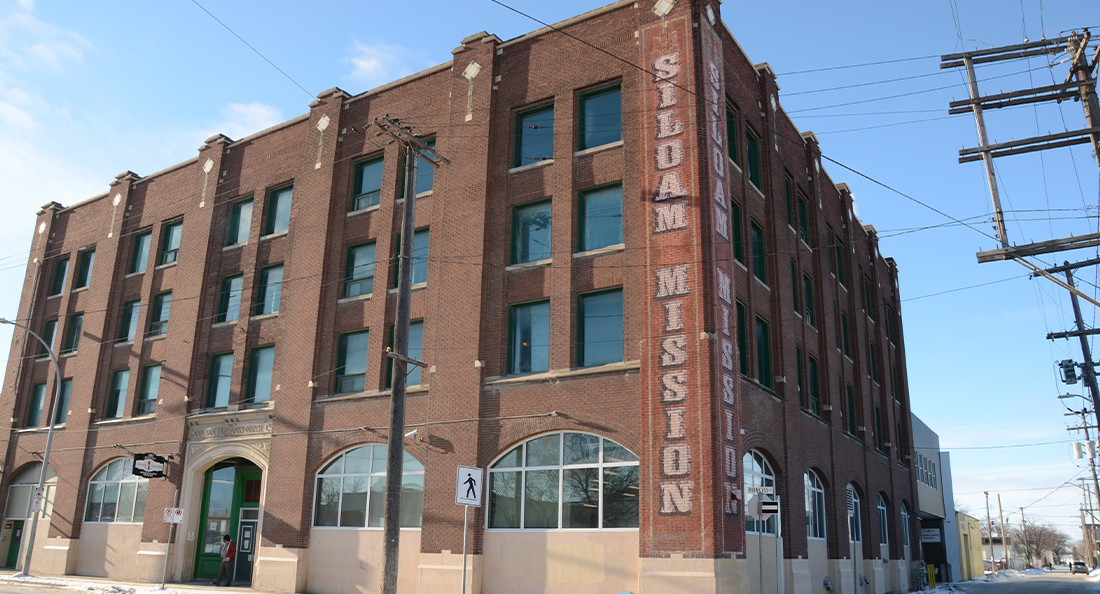Whose Siloam is it?
Social media campaign started to hold Siloam Mission accountable
Started only on Dec. 31, 2020, the Instagram account @notmysiloam (NMS) has already amassed over 1,300 followers. However, NMS creators Kara Von Riesen and Winnipeg musician Sierra Noble say their campaign has only just begun.
Von Riesen says “People often turn to social media when they feel unheard, so this is an opportunity for individuals to have their voices heard and amplified.”
NMS is a campaign to help bring awareness to the lack of Indigenous cultural and spiritual support at Siloam Mission. It calls for the removal of present CEO Jim Bell and to reorganize the board, after their appeal to the board was not heard on Nov. 3 of last year.
As former employees of Siloam, the NMS organizers want to reiterate that Siloam Mission has provided a positive impact in the community, but that can be broadened with some leadership reorganization.
Siloam Mission leaders “have created a lot of problems in the organization and with the community that they serve, and they are simply unfit to fix them and to be in leadership anymore. It is also extremely important that their employee and board seats represent the community that Siloam serves,” the NMS organizers say.
According to 2018 Winnipeg Street Census, an estimated 66 per cent of people experiencing homelessness were Indigenous, and Von Riesen says this statistic calls for organizations like Siloam Mission to represent diversity better in the workplace.
“Indigenous people are best equipped to serve Indigenous people. If 70 to 80 per cent of people using the services are Indigenous, then that number should be reflected in its staff, board members and essentially along all lines of employment,” she says.
Von Riesen notes that although many campaigns to raise social awareness do start with “Not My,” they cite Not My Stella’s as a local example that communicates a similar message.
“What we liked about Not My Stella’s was that it made clear that Stella’s has great servers people should still be supporting, but there is a very clear problem (with) upper management and the direction of leadership that Stella’s had,” she says.
“In the same way, Not My Siloam tries to articulate that. Siloam does good service, and good work is happening here. However, there is a really big problem with those in leadership positions.”
Although NMS focuses on Siloam Mission, Noble notes that they want their campaign to be an example to other organizations that serve majorly Indigenous communities that are not Indigenous-led.
“We hope that other nonprofit organizations are not looking at this and just sitting back and thinking, ‘So glad this is not us,’ or ‘so glad we are not as bad as them,’” Noble says.
“I hope that they take this as an opportunity to really take a hard look at what they are doing and how they can be doing it better, because reconciliation is hard work. It is the most important work that needs to be happening in our country, and it is up to all of us, but especially up to settler populations to be a part of it and an active part of it at all times.”
In an emailed statement to The Uniter, Siloam Mission quoted CEO Jim Bell as saying, “One thing we all share is a commitment to, and compassion for, those living in poverty and homelessness in our inner city. In acknowledging that mistakes have been made, we have accepted an invitation to begin a collaborative conversation in an effort to walk a path together toward resolution on these important matters.” The statement goes on to say that “arrangements are already underway. Siloam will continue to provide further updates.”
Published in Volume 75, Number 15 of The Uniter (January 21, 2021)







